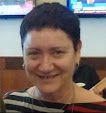
Thank you for the welcome. It's great to be back in SCoPE.
My name is Nellie Deutsch. I am a self-paced learner/teacher that has always managed to escape the confines of formal education for flexible learning. After 3 years of ongoing doctoral classes in education, leadership, curriculum, instruction, and evaluations of mostly the American educational system, I would like to summarize it all by saying one word "Help".
I am interested in quality learning and look forward to great discussions.
Warm wishes,
Nellie Deutsch
(April 20, 2009)
I am beginning to get the feeling that evaluating formal and informal learning will ultimately be the same. Learners may be enrolled in formal learning environments but learn informally. I would be interested in measuring the impact of informal learning in formal learning environments. Can formal learning exist without informal learning?
However, before we begin to evaluate anything, shouldn't we know what we are evaluating? So what is informal learning and how is it connected to formal education? Well, according to Cross (n.d.), "Informal learning is learning without borders. Organizations improve it by removing obstacles, seeding communities, increasing bandwidth, encouraging conversation, and growing networks. It’s a natural way to learn and grow".
Nellie:
I doubt that formal learning can exist without informal learning. Perhaps informal learning is a bit like the white space around typed words on a page: the space has power because of it ability to shape our interpretation of and response to those very words.
However, some informal learning is incidental (or accidental) learner vs. purposeful, informal learning. As informal learning gets looped up into formal learning, the purposeful learner is going to show that additional learning in his/her work, but it's not going to be easy to measure. I'm also not sure that we should measure informal learning in any formal manner--but I'm willing to be persuaded otherwise.
Please look at my next comment as "electronic thinking aloud." Many learners don't actually know how they learn and yet that knowledge is powerful and valuable information. Some learners will take to journal writing and critical reflection like a duck to water....and others will only come to value this learning after being introduced to it --"taught" how to do it, if you will. Perhaps, in addition to the items you mention in your closing comment, informal learning needs to include techniques for making use of informal learning.
Cheers, Chris
Hi Chris,
You said: I'm also not sure that we should measure informal learning in any formal manner--but I'm willing to be persuaded otherwise.
Many stakeholders such as Ministries of Education, teacher's training colleges, career specialists, teachers, curriculum and instructional designers/specialists, program evaluators, school administrators, parents, and students may be interested in knowing how much learning is going on as a result of classwork (formal) and how much outside the classroom (informal) for the purpose of improving instruction and perhaps decreasing the number of teaching hours in one subject and increasing the hours in another. For example, I teach English as foreign language (EFL). Most of my students learn English incidentally or accidentally via TV, the internet, from family members, friends, and from listening to music. It just so happens, there is a shortage of English teachers right now. Having less hours would resolve the problem of recruiting faculty for specific subjects such as EFL and placing more emphasis on others like Mathematics that cannot be acquired informally.
Perhaps we can list a few formal ways of evaluating learning and see whether any of them can apply to informal learning.
Nellie:
I've been giving some considerable thought to what informal learning looks like....and there are, of course, several types.....but "what does it look like in post-secondary courses?" is what's rattling around in my mind right now.
So, again, hiding behind "electronic thinking aloud"....I'm wondering if evaluating informal learning is a task best left to the learner and that if there has to be a formal evaluation why not a learning contract where the learner contracts for a grade based on meeting several goals (which are determined by the learner).
Now, right away, I can start arguing the other side of this item...learning contracts aren't well received in all post-sec institutions, in some schools, by some faculty and administrators....and then there's the learning (formal or otherwise) that's required by faculty and learner to make the best use of a learning contract....still, I wonder if it's something worth exploring.
Chris,
I would also like to come up with an evaluation plan for self-evaluations and peer feedback. How about compiling a list of criterion?
You may find Evaluating informal learning in a virtual context by Giustina IADECOLA Nicolò and Antonio PIAVE of interesting to read.

No comments:
Post a Comment
Your comments are welcome!